BACKGROUND
External grade Porcelain Paving Slabs have been gaining popularity throughout the European market over the last decade, with porcelain become the paving of choice throughout the whole continent. The increase in popularity of porcelain paving has over recent years reach the UK market. Over the last twenty years our domestic market has been completely dominated by natural stone paving imported from around the world but predominantly from India and China. It is unclear how dominant porcelain will become in the UK because traditional hand cut and split natural stone products will always hold a valued position within our diverse housing stock. Compared with European countries who do not hold the history with natural stone paving such as the world famous Yorkstone that has been used throughout the UK for centuries, this might explain the rapid move to Porcelain paving throughout Europe.
What is sure, is that porcelain paving slabs are set to take a very larger proportion of the market over the next few years, reducing sales of all other products.
Over the coming weeks we are going to investigate the reasons for the dramatic rise in the porcelain paving market and its benefits and drawbacks compared to other materials available to the UK consumer. But for now I would like to give some basic information on how our range of superb quality Polish and Italian porcelain paving products are manufactured and the reasons we believe our products are industry leading.
PRODUCTION PROCESS
Raw Materials
We source the finest raw materials from specifically selected quarries from around the world and are predominantly made up of clays and Feldspar and other elements such as quartz and silica. These materials are mixed together in a large rotating drum, this drum works like a mill, grinding down the clay and other materials into the desired consistency, This gives the best final result in quality of finish, better durability meaning greater longevity of use and greater consistency from batch to batch.
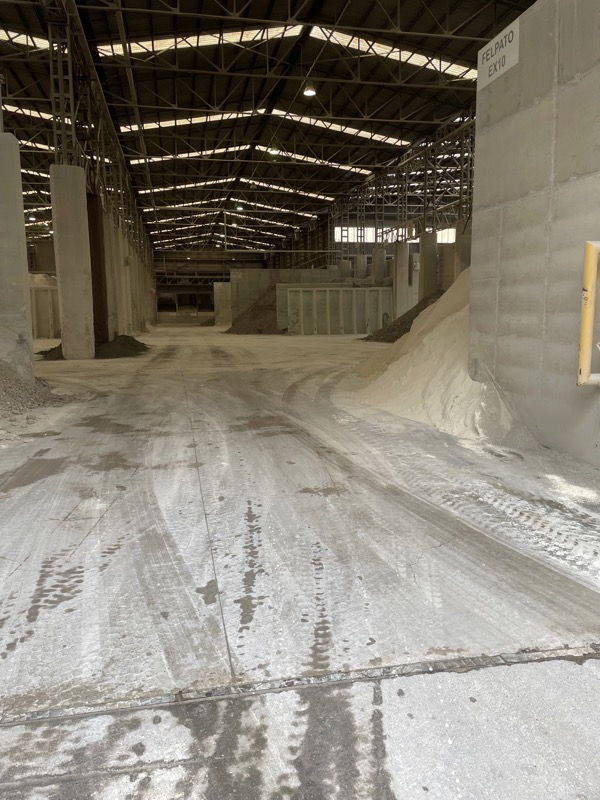
Creating the Tiles
Once the raw materials have been refined and ground, water gets added to the mixture, to create slip. This slip is then fed into a machine that presses the material into the desired size and shape required for the product being manufactured, creating the body of the tile, at this point the part finished products are called Greenware. During the pressing process the surface texture is added to the paving, which requires the highest quality machines to start to form a realistic surface finish helping to mimic Natural stone perfectly, unlike lesser machines that are not able to offer the same level of details and accuracy.
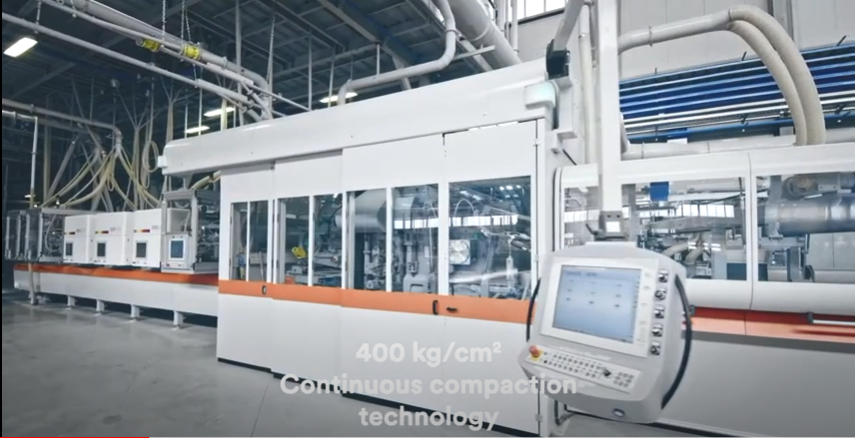
Drying / Curing
After the pressing process has finished the Greenware tiles are placed in a dryer to remove moisture, readying the tiles for the printing process.
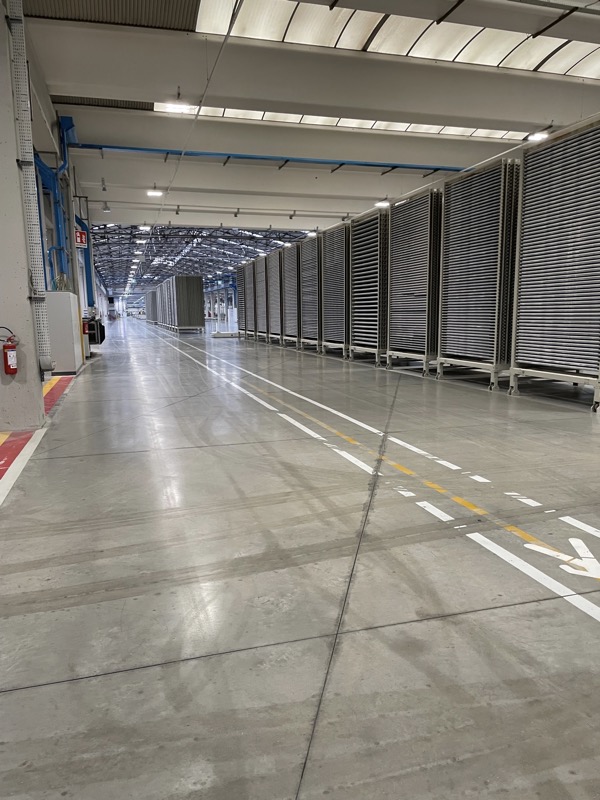
The Printing Process
After the tiles have dried, the next step is to add the pattern and colours using a state-of-the-art inkjet printers. The tiles are fed through the printers using minimum either dual or tri-colour heads to enable a wider spectrum of graphic variance, double most other products available in the UK, and refined attention detail that can follow the contours of the pressed surface finish for the most realistic surface finish of any products available worldwide.
The firing Process
Once the tiles are printed they are ready to be fired, we have invested in longer than average Kilns for our production, this enables us to manage closer and better the overall result of each product, this is achieved by gradually firing the tile over a longer period between temperatures of 1000 to 1300 degrees C, building the temperature up gradually and then a longer cooling down process creating less stress on the product, meaning no bowing and less brittle than our competitors.
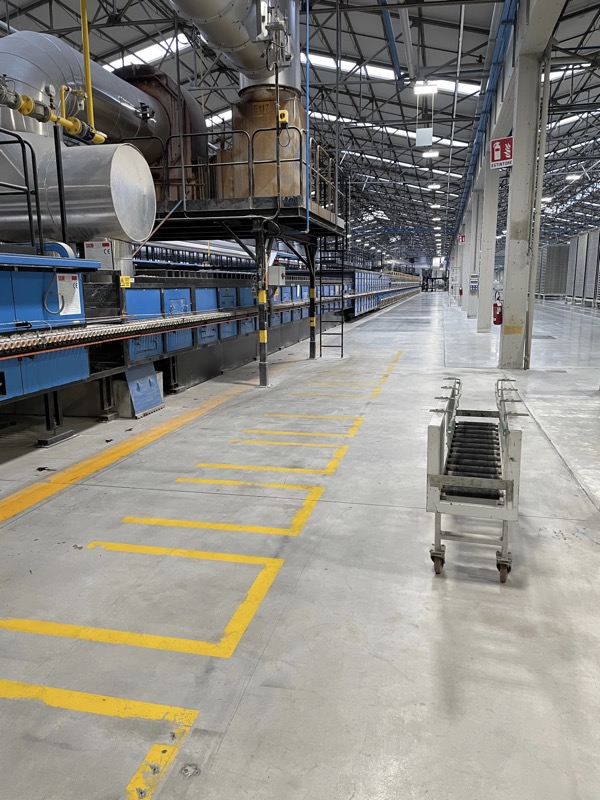
Rectification
The majority of our tiles are rectified after firing, this process involves all the edges of the tiles being sawn this ensures our products have a near perfect straight edge and very little tolerances, making our product easier to install and improving the finish of the installed product.
Other suppliers produce un-rectified Porcelain paving, which means that they are only pressed and fired, resulting in softer edges more uneven edges, with higher size tolerances, which means more allowance needs to be given when laying resulting in a less crisp finish and more adjustments need with the pointing gaps.
Honing / Polishing
After the tile have been rectified and are now the correct size, additional surface treatments can now take place to alter the surface finish of the product, this process is done completely mechanically and involves sanding the surface of the tiles at different grades, the higher the grade the higher the polish level of the finished tiles.
Packaging
The packaging process is completely undertaken by robots to eliminate the risk of heath and safety issues when packaging such heavy products and to increase the efficiency and accuracy of the whole process.
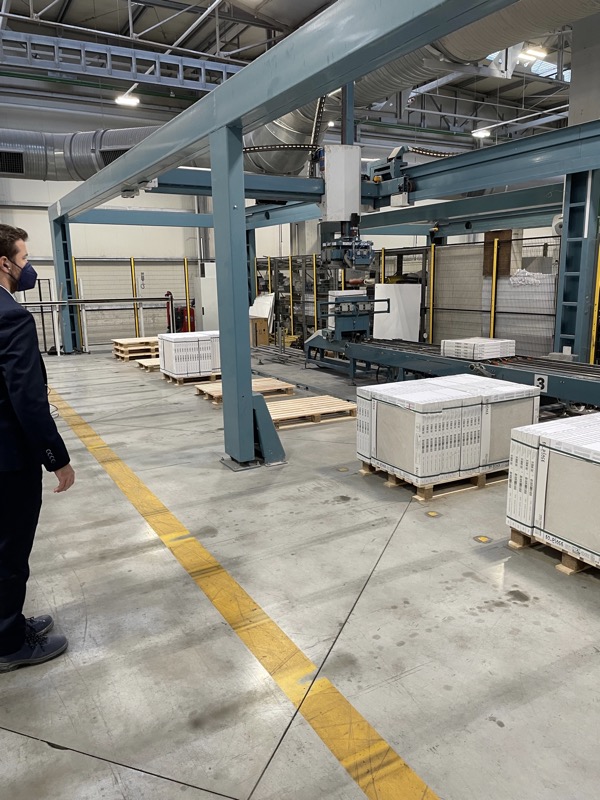
Storage ready for dispatch
After the tiles have completed production they are stored in vast storage yard ready to be dispatch to locals in over 130 different country throughout the world.
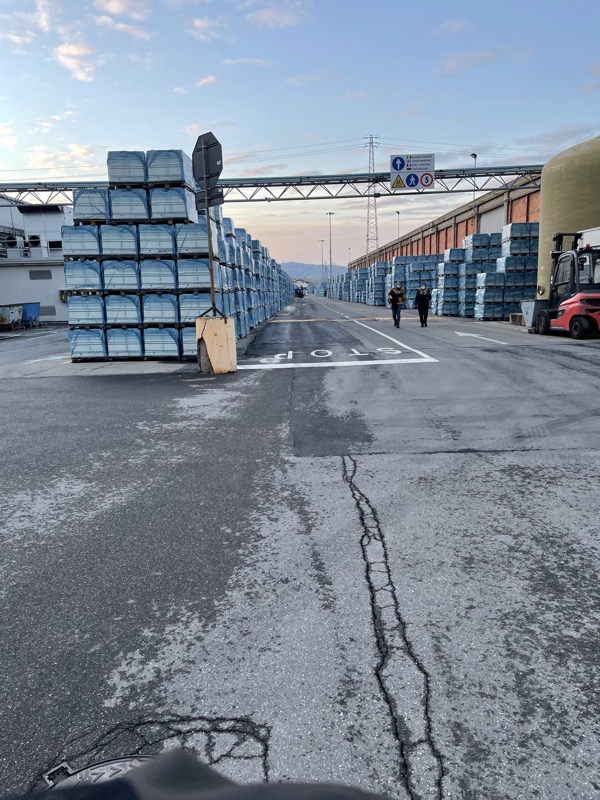
Final Result
The final result is a product with extremely high performance and low water absorption ratings of less than 0.5 percent, the production processes we use are above the industry norm, this helps us ensure our products have greater density than the average product in the market, meaning greater strength and less subject to wear under heavy foot traffic or in commercial environments.
If you need any more information with regards porcelain paving please email or call your local branch.
The NST team

